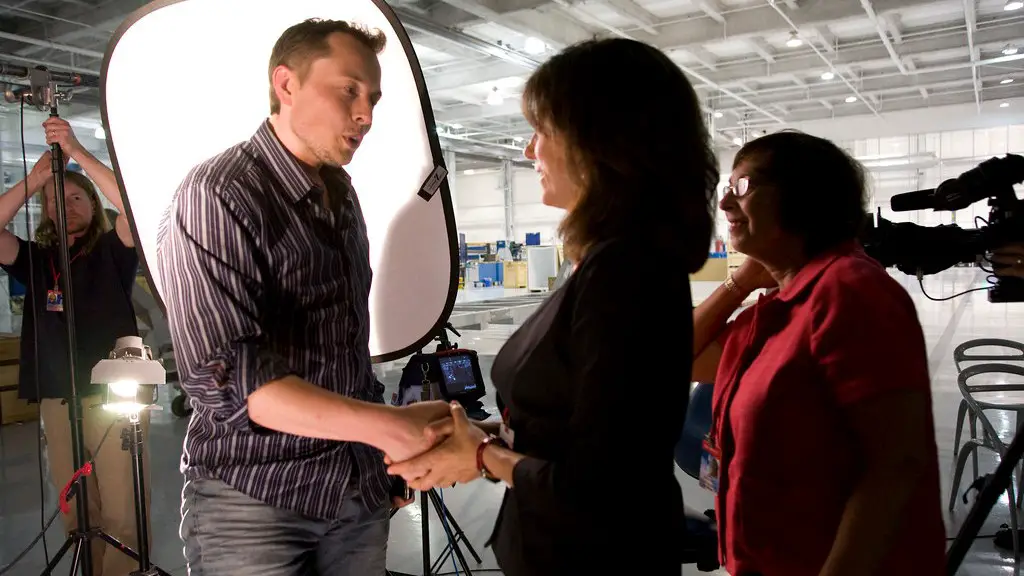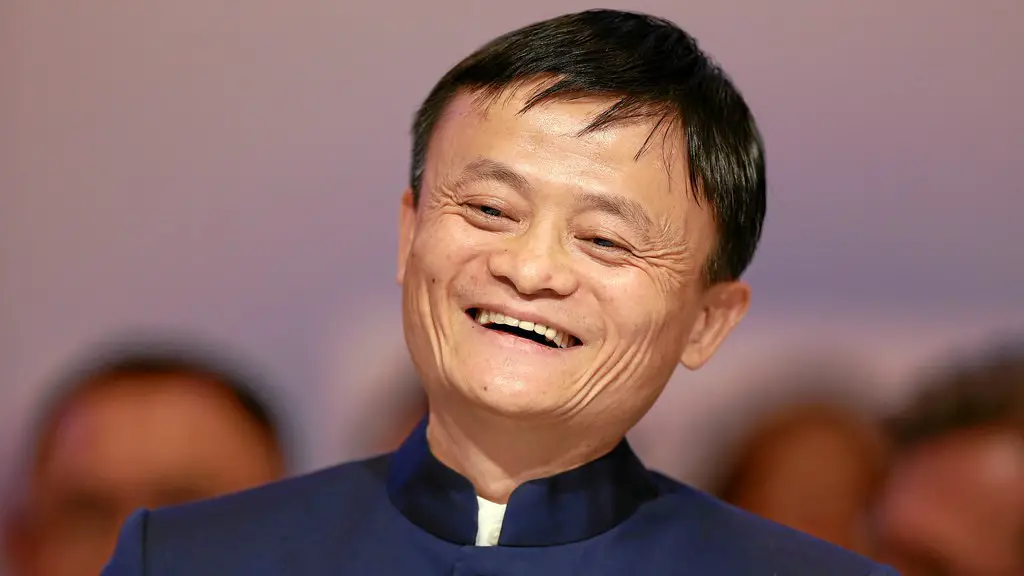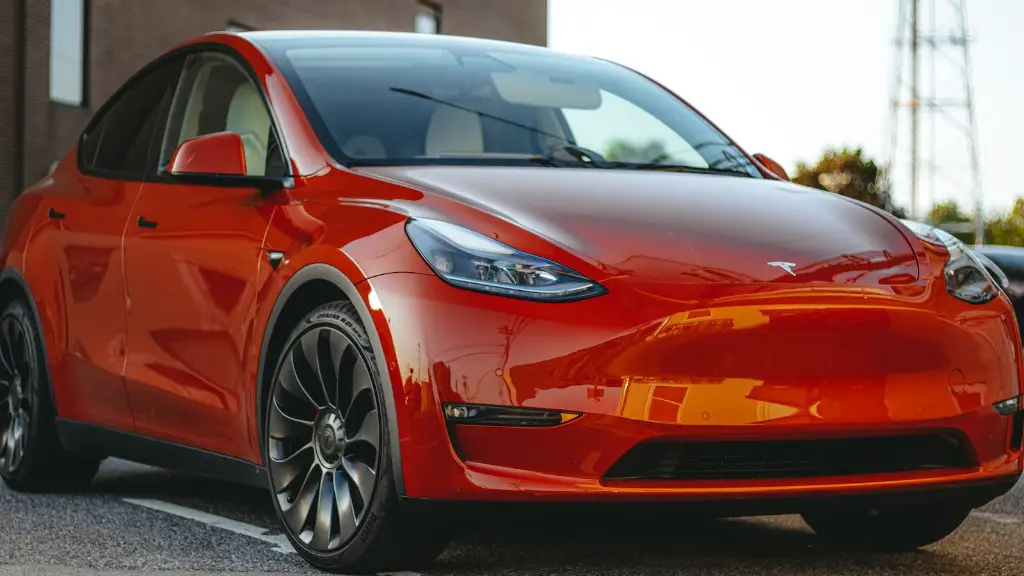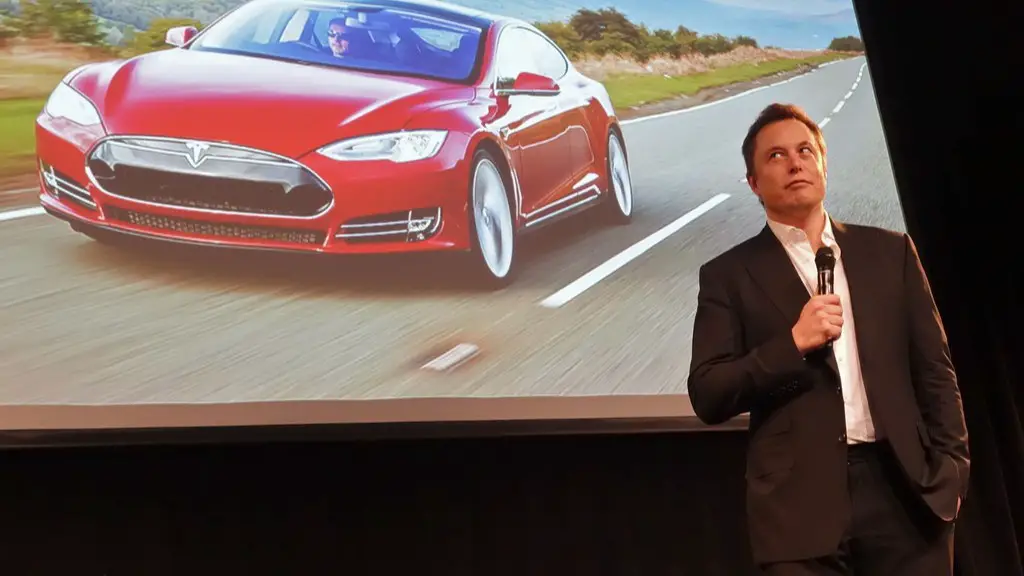Elon Musk is a well-known entrepreneur, investor, and engineer; his name is often synonymous with innovation, ambition and technology. But did Elon Musk really invent Tesla? In this article, we’ll take an in-depth look at the answer to this question and explore the different perspectives from experts.
Tesla Motors was founded in June 2003 by engineers Martin Eberhard and Marc Tarpenning, both of whom had a deep interest in electric vehicles and had worked on the development of the Tesla Roadster in the late 90s. But the idea of Tesla Motors itself dates back to the year 2000, when the company was originally conceived as an EV startup by Martin Eberhard and Marc Tarpenning.
It’s worth noting however, that Tesla Motors was initially funded by Elon Musk in February 2004 and he became Chairman of the Board of Directors a month later. Despite his formal involvement in the project from the beginning, it has been argued that Elon Musk was not the inventor of Tesla. Instead, it’s argued that he played a pivotal role in the development of the technology and the company’s growth, but the original conception and invention of Tesla was indeed credited to the founders of the company.
This is a viewpoint held by experts in the world of technology- including Michael Santoro, a professor of business ethics at Rutgers Business School. In an interview with the New York Times, he stated that “Even if Elon Musk did not invent the technology behind the Tesla Motors, he brought together the components and applied his business acumen to create the successful electric car company.”
In addition to arguing that Elon Musk was not the inventor of Tesla, experts have noted his creative team-building approach as one of his key attributes- as he carefully puts together a team of talented and diverse professionals to bring together the company’s vision. As noted by tech entrepreneur, Andrew Yang, “Elon Musk has an incredible knack for surrounding himself with top talent. He’s not afraid to poach from the best, and he makes sure the environment provides an opportunity for everyone to have a voice.”
It’s clear that while Elon Musk was not the inventor of Tesla – he is a key contributor to the company’s success. His role in creating Tesla has been associated with his ambitious vision, innovative approach and willingness to take risks. His relentless pursuit of creating the best electric cars on the market has seen Tesla’s success soar in recent years and has inspired countless entrepreneurs around the world.
Elon Musk’s influence on Electric Vechicles
Arguably, Elon Musk’s most profound effect on electric cars has been the disruption of traditional automotive companies. As noted by Sweta Vyas, a automotive analyst at Bloomberg Intelligence, “Prior to Tesla’s entry, the industry had been heavily reliant on large, entrenched players and applied conventional technology that had been unchanged for decades. With the introduction of Tesla, it took the industry by storm and displayed confidence in the potential of electric vehicles.”
Tesla’s success in the electric vehicle market has demonstrated to automakers the potential feasibility of new technology in their vehicles and consequently, the rest of the industry has started to produce competitive EV models in response. This has enabled a shift in consumer sentiment – removing the stigma that electric cars are slow and unreliable and instead, as Vyas asserts, “making [EVs] desirable and must-have products.”
Not only has Musk’s influence reshaped the mindset of consumers, but the cost of owning an electric car has also been reduced due to advancements in charging technology. By overcoming the “range anxiety” of not having enough charge and extending the combination of range and charging, it has made it easier for all to use electric vehicles and enjoy their extended battery life.
As noted by Chelsea Sexton, a longtime advocate for electric vehicles, in an article for Forbes, “Musk has been credited with driving down the cost of electric vehicle batteries and incentivizing suppliers to produce more efficient technology. This is commonly referred to as the ‘Tesla effect’ — a term which highlights the tangible effects of the company’s success in driving down the cost of these batteries for all automakers.”
Influence on Sustainable Energy
Beyond enabling the widespread adoption of electric vehicles, Elon Musk’s influence and ambition has also been associated with the growing necessity of sustainable energy solutions as we move towards becoming net-zero emissions.
This is a trend which has gained a great deal of traction in the past several years, as environmental concerns have become more widely acknowledged and acted upon. This is partly due to Tesla’s efforts in researching, developing, and producing their solar roof tiles, which have been widely praised for their ability to both generate electricity and reduce energy costs.
In addition to this, Tesla has installed batteries to store the energy generated from their solar roof in order to reduce power outages during peak hours. These batteries combined with their solar roof offer a more sustainable alternative for consumers and have thus been credited as one of Musk’s greatest contributions to the world’s energy sector.
Not only has Musk’s disruption of traditional energy companies been noted by experts, but his ability to revolutionize the solar industry with his innovative products has also been praised by environmentalists. For example, in an article in The Guardian, Mark Ruffalo notes that “Elon Musk has consistently revolutionized the industry with groundbreaking products, making it easier and more affordable for everyday people to generate their own electricity.”
It is clear that Musk’s influence on sustainable energy solutions has enabled consumers to become energy-independent and it has also provided a spark to the renewable energy industry. Additionally, Musk’s innovation and ambition have facilitated the widespread adoption of EVs, battery storage, and solar energy – three pillars of the renewable energy revolution.
Environmental Impact of Electric Vehicles
In addition to its influence on the energy sector, Tesla has had an impact on the environment and sustainability. This is due to its instrumental role in the mass production of electric vehicles, as they have reduced emissions significantly compared to traditional combustion vehicles.
For example, according to a study conducted by the International Council on Clean Transportation, “(EVs) produce an average of 28% lower emissions than gasoline powered cars, and up to 67% lower emissions than diesel powered ones.” This has been further corroborated by the Climate Change Study conducted by the Independent Net Zero 2050 Commission, which reported that reducing emissions from transportation is “essential to achieving climate goals.”
In addition to their significantly lower carbon dioxide emissions, electric vehicles also don’t produce other pollutants such as smog and particulate matter which have been traditionally linked to the degradation of the environment. Instead, EVs are powered by clean, renewable energy sources and are thus regarded as a more sustainable form of transportation.
It is thus undeniable that Tesla’s mass production of electric cars has had a positive effect on our environment and its sustainability. Moreover, experts recognize that Musk’s ambition, pioneering spirit, and dedication to the cause have resulted in the rapid adoption of EVs and subsequent decrease in emissions across the globe – thus actively contributing to humanity’s transition towards a healthier and more sustainable future.
Tesla’s Effect on Automation and Robotics
Another area of impact associated with Tesla and Elon Musk is automation and robotics. This is due to the company’s pioneering approach to automation and its commitment to lead the industry’s evolution into a more effective and efficient form of manufacturing.
For example, in order to reduce costs and increase efficiency, Tesla has implemented the use of automated robots and machines in its assembly line. This has enabled the company to build its cars faster, more consistently and with more precision – something which has been lauded by numerous experts in the industry.
In addition to this, Tesla has partnered with Panasonic to produce solar roofs, which feature automated production using machines. These machines make it possible to produce solar panels faster and more accurately and thus make them more efficient and ultimately more cost-effective. This automation has been credited with making solar roofs more accessible and thus contributing to the further adoption of sustainable energy solutions.
Moreover, it’s worth noting that Tesla has also implemented automated driving and self-driven car technology in its vehicles – something which is predicted to make the roads safer and more efficient in years to come. It has been argued that this initiative “has set the industry standard for automated driving and self-driving cars, paving the way for other automakers to follow” as asserted in an article in Automotive News.
It is thus clear that Tesla and Elon Musk have had a significant impact on the field of automation and robotics. Their ambitious approach to technology and automation has enabled them to revolutionize the industry and push it into a new era of sustainable, efficient and cost-effective manufacturing.



